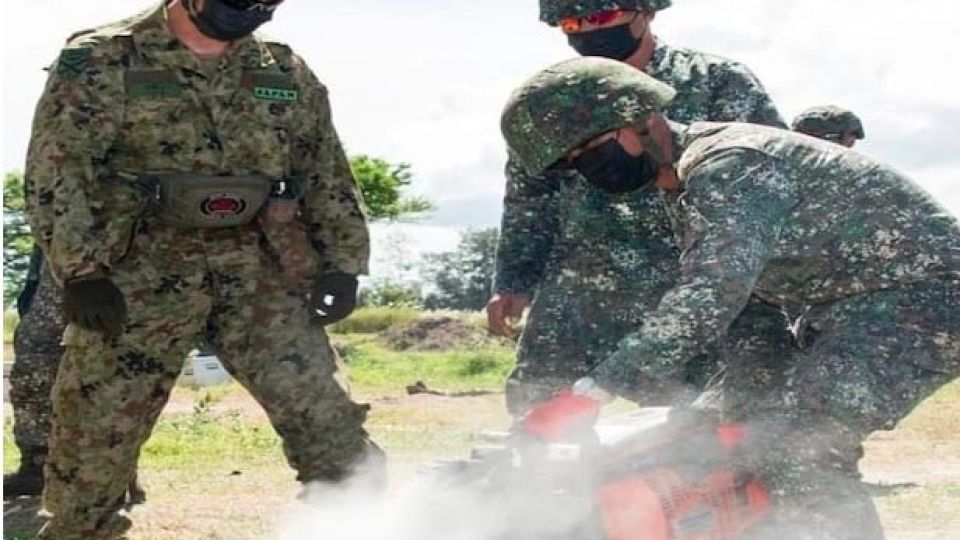March 6, 2023
MANILA — Japan is joining a large-scale joint exercise between the Philippine and US armies for the first time, a top military official said, in the latest of the emerging trilateral defense partnership of the three nations.
A handful of observers from the Japan Ground Self-Defense Force (JGSDF) will participate in Salaknib (shield in the Ilocano dialect) — an annual exercise led by the Philippine Army to strengthen the readiness and interoperability with its counterparts from the United States — which will kick off next week.
“We invited Japan to observe Salaknib as an extension of the observer program being done in Balikatan for many years already,” Army chief Lt. Gen. Romeo Brawner Jr. told the Inquirer.
The Balikatan is the largest military exercise between the Philippines and the United States, with other like-minded countries as observers.
“It will help our interoperability as land forces,” he said.
3,000 troops to join
Brawner said Japan could gradually send more troops to participate in their joint training in the future once both countries enter into a visiting forces agreement.
The Philippines and Japan, both US allies, are a step closer to such an agreement with the signing of terms of reference on humanitarian assistance and disaster response contingencies during President Marcos’ working visit to Japan last month.
Around 3,000 troops from the Philippine Army and US Army Pacific (USARPAC) are expected to take part in this year’s Salaknib, larger than last year’s 2,200.
The Salaknib exercise will be conducted in two phases — from mid-March to early April and June — in various areas in Northern Luzon including Fort Magsaysay in Nueva Ecija, one of the first five agreed locations under the Enhanced Defense Cooperation Agreement, a deal which allows the United States access to Philippine bases for joint training and prepositioning of equipment.
The participating troops will come from the Army’s 5th Infantry Division, 7th Infantry Division, and 1st Brigade Combat Team; and USARPAC’s 25th Infantry Division.
Similar security concerns
“It is expanded to include more training activities,” Brawner said without elaborating.
In December, the Philippine Army sent observers for the first time to Yama Sakura, the largest command post exercise in Japan between the JGSDF and USARPAC. It also plans to join future exercises of Orient Shield, the largest field training exercise of Japanese and US armies, also in Japan.
The expansion from bilateral to multinational exercises among US allies is expected to become a trend amid growing security threats in the region, to deter what the United States described as “irresponsible behaviors” of actors like China and North Korea against their neighbors.
Both the Philippines and Japan share similar security concerns over their respective territorial and maritime disputes with China.
Brawner had emphasized last year the importance of interoperability with allies and partner countries, as the Army gears itself to take territorial defense tasks amid a dynamic regional security environment.
“Who knows, someday, we might need to operate with them. We need to train to operate very effectively to be interoperable,” he said.


